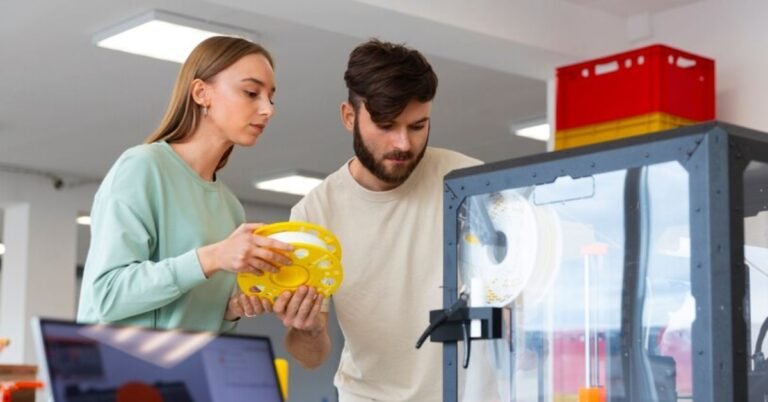The Current State of Manufacturing Customization
The manufacturing industry is undergoing a transformative period, where offering customized products has emerged as a crucial differentiator. This shift is fueled by customers who increasingly seek products that resonate with their tastes and functional needs. Manufacturers are thus investing heavily in agile production systems that can rapidly adjust to custom specifications. A cornerstone of this movement is the utilization of a CPQ configurator simplifies the system and aids in streamlining intricate product configurations. Such systems are designed to handle the complexity of custom orders while maintaining efficiency and reducing errors in production.
According to industry research, the global trend of rising consumer demand for customized products continues to grow, driven by technological advancements and enhanced digital manufacturing capabilities. These developments enable manufacturers to provide a wider array of custom options without escalating production costs, making customization feasible at scale.
The Role of Technology in Product Customization
Technological advancements are revolutionizing the product customization landscape. Tools such as artificial intelligence, 3D printing, and the Internet of Things (IoT) have become fundamental in redesigning traditional manufacturing processes. AI offers predictive analytics and designs that streamline customization processes, while 3D printing allows for creating complex, customizable parts with remarkable precision and speed. These technologies collectively facilitate a seamless transition from concept to production, catering to individual customer requirements.
Furthermore, digital twins—virtual replicas of physical entities—allow manufacturers to model and simulate customer-specific designs. This capability minimizes the likelihood of errors before actual production and improves the overall customer experience by facilitating interactive engagement with the product. Augmented reality (AR) further augments this process by allowing customers to visualize and modify products virtually, ensuring complete satisfaction before committing to purchase.
Adopting a Modular Design Strategy
Adopting modular design strategies presents a significant opportunity to enhance manufacturing customization. Through modular design, products are deconstructed into discrete units or modules, each of which can be independently produced and assembled in various configurations. This approach provides flexibility and scalability, enabling manufacturers to meet a broad spectrum of custom demands without extensive redesigns of the entire product.
Industries such as automotive and electronics have successfully integrated modular design into their production lines. For example, automotive manufacturers offer vehicle customization options, allowing consumers to select from various features, including engine types, interiors, and technology packages. This method meets customer demand for personalized vehicles while optimizing production efficiency and inventory management.
Leveraging Customer Data for Better Customization
Manufacturers rely on data analytics to glean insights into customer behavior and preferences to enhance product customization capabilities. By harnessing data from point-of-sale systems, social media trends, and customer feedback, manufacturers can tailor products to more closely align with what customers want. This strategy minimizes the likelihood of excess inventory while enhancing customer satisfaction by ensuring that product attributes correspond with expected consumer preferences.
Analytics tools provide manufacturers with enhanced insights into their target audience, facilitating the development of more efficient marketing strategies and product designs. For example, fashion retailers use customer data to anticipate trends, ensuring their designs remain relevant and enticing. This, in turn, fosters a more personalized customer interaction and brand loyalty.
Challenges in Implementing Advanced Customization Techniques
Despite the apparent benefits, implementing advanced customization solutions has challenges. Cost management is a significant hurdle as manufacturers must invest in technology and personnel training to handle customized orders effectively. Moreover, complexities are associated with integrating new technologies into existing production lines.
Quality control remains another hurdle — ensuring that customizations retain the same quality and durability as standard productions can be complex. To mitigate these challenges, manufacturers can follow strategies highlighted in, for example, a recent report on technology in supply chain management, which emphasizes optimizing resource allocation and employing lean manufacturing principles to foster efficient and effective customization processes.
Sustainability and Customization
Sustainability is progressively emerging as a crucial factor in manufacturing practices, mainly customization. With greater awareness of environmental impacts, customers and manufacturers seek ways to incorporate sustainable practices throughout the customization process. This involves utilizing eco-friendly materials and optimizing manufacturing processes to minimize waste.
By prioritizing sustainability, manufacturers appeal to environmentally conscious consumers and improve cost efficiencies through reduced resource consumption. Moreover, sustainable customization practices highlight a manufacturer’s commitment to corporate responsibility and can enhance brand image and customer relations.
The Future of Product Customization
The future of manufacturing is poised to be a dynamic interplay between maximizing efficiency and catering to the increasing desire for customized products. As technology advances, offering increasingly sophisticated tools for customization, manufacturers must cultivate a mindset of adaptability and actively incorporate these innovations into their processes to stay ahead of the competition.
Hyper-personalization, a strategy that enables products to be meticulously customized to align with individual customers’ distinct needs and preferences, is poised to revolutionize consumer expectations and reshape the shopping experience. Consumers will not only look for products; they will desire items that profoundly connect with their tastes and lifestyles.
Manufacturers who can foster a culture of continuous innovation and respond nimbly to shifting market demands will thrive in this evolving landscape. By embracing this proactive stance, they can position themselves as suppliers and essential partners in the customer journey. This partnership will enhance customer loyalty and pave the way for sustained business success in a future where personal connection and responsiveness are paramount.

